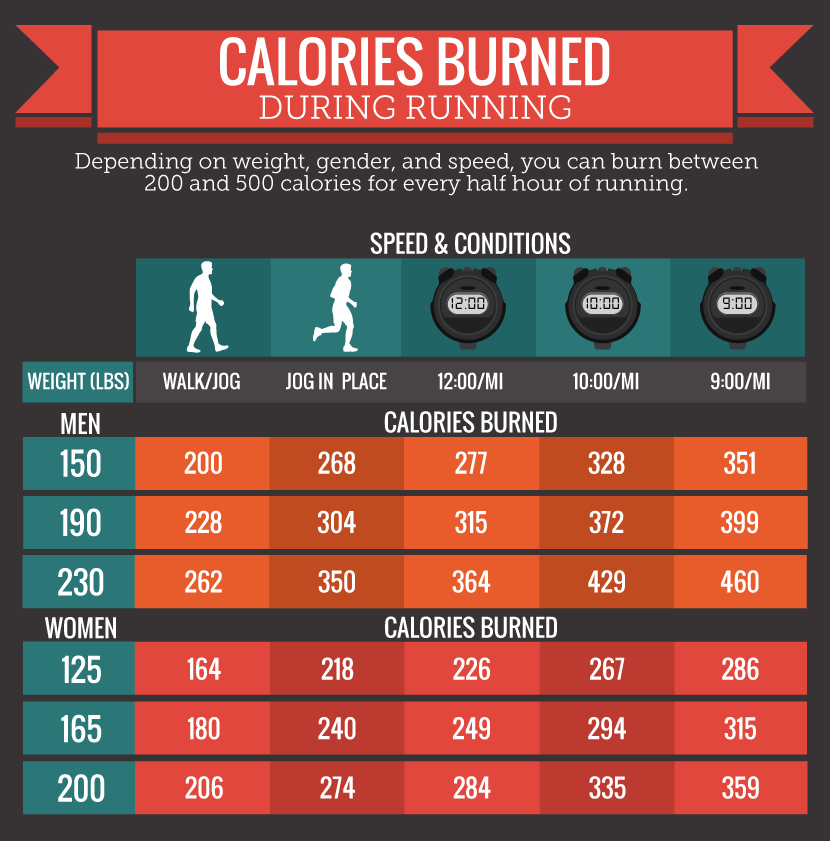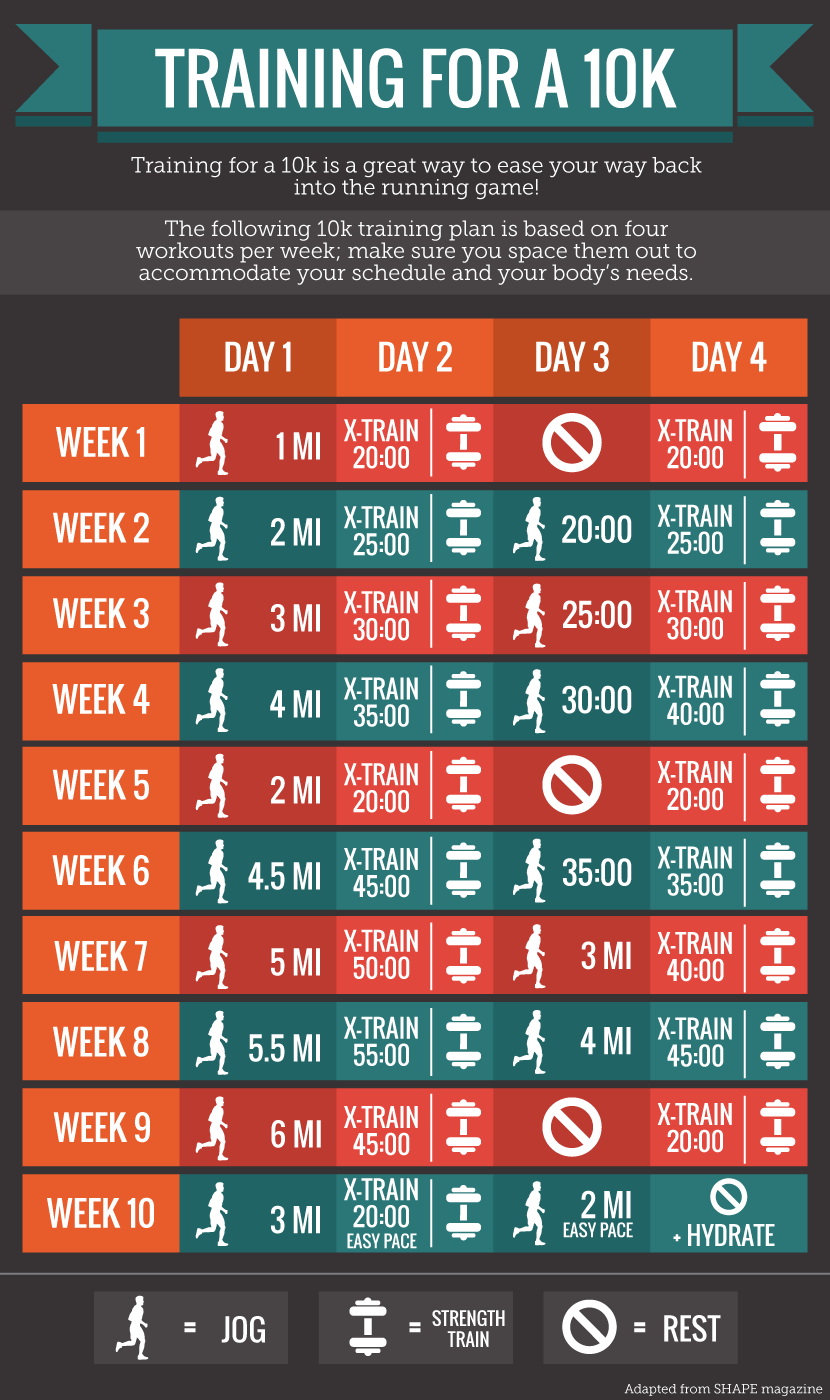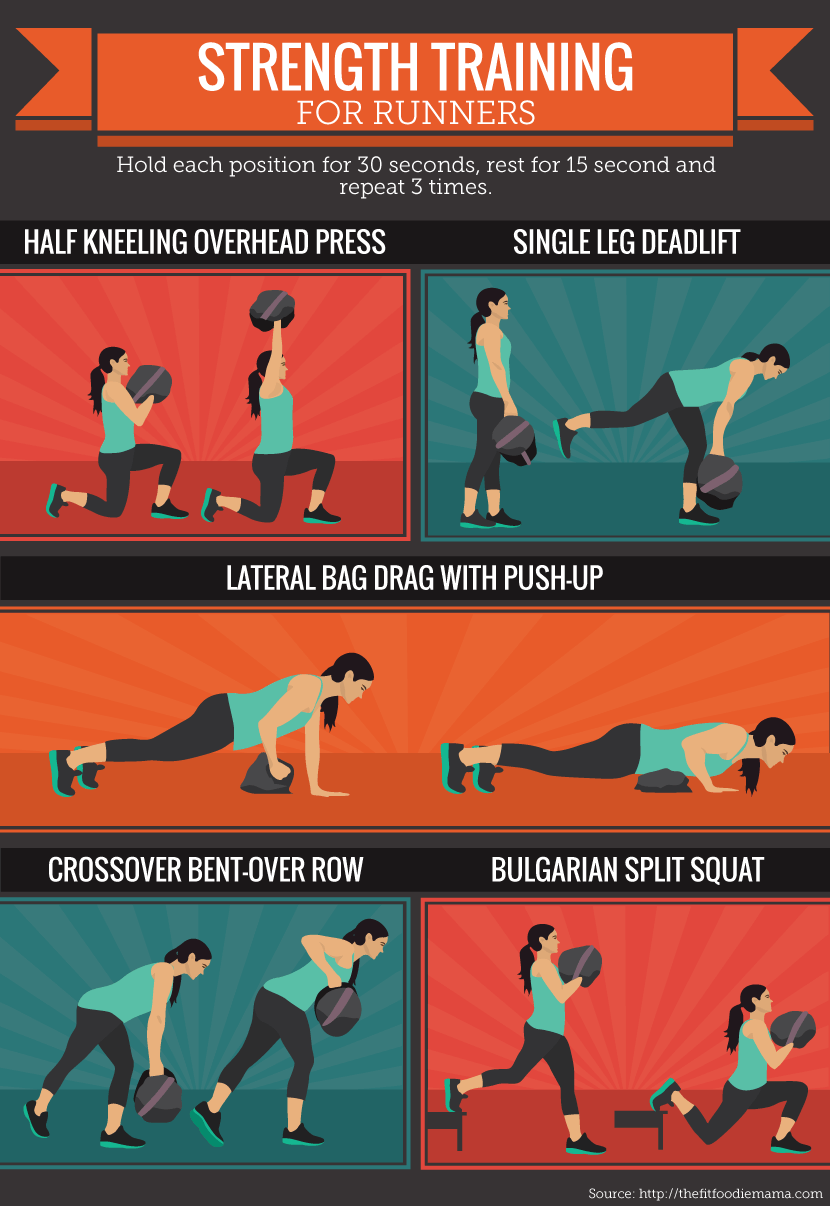It's Never Too Late to Start Running Again
How to Get Back into Running
Getting back to running after time off can be difficult for even
the most seasoned runner. Whether because of injury, personal
circumstances, or a planned break, as time off adds up, it becomes
increasingly difficult to get started. Days turn into weeks, maybe
even months, and you keep telling yourself, “I’ll start Monday,” but
Monday never comes.
As much as you want to reesta blish your running routine because of how great
it makes you feel, there are barrier s that can arise.
Other Priorities
Sure, running is great, but you have a family to take care of, a big deadline
at work, a college buddy in town, or the game is on. If you are letting other things
take priority over your runs, it’s time to be honest with yourself.
Some things should take priority over going for a run (like feeding your children
and going to work), but if you are putting everything ahead of your runs, you won’t
have a fighting chance.
Take stock of your priorities and determine where running currently sits.
If it’s at the bottom and you want it to be closer to the top, what is keeping
you from working harder to make it a priority?
Self-Doubt
“I took too much time off.”
“I’ll never get back to where I was.”
Self-doubt can be a beast to overcome. If running has suddenly slipped to the
bottom of your list of priorities, self-doubt and self-sabotage may be culprits.
After all, you can’t fail if you never start, right?
- Focus on what you can control and be mindful – although you can’t go back and
talk yourself out of taking an extended break from running or
look ahead into the future to see how long it will take you to
get back to where you want to be, you can go for a run today. So do it.
- Be nice to yourself – instead of beating yourself up about what
you can’t do, focus on all the great things you can do. Test out some
positive affirmations or popular running mantras to pull you out of your
negativity rut. Fake it ’til you make it.
Weight Gain
There are a ton of benefits to getting out and hitting the pavement regularly –
including weight management. It’s therefore no surprise that taking a break from running
can sometimes lead to weight gain, which can then actually undermine motivation to resume
running. However, remember that the first step to getting back in shape is taking that
step. Start slowly: a light jog can still kick-start your fitness path.

Although the prospect of losing weight can be a great motivator to start running,
sometimes the shame or guilt of gaining weight is enough to keep people from wanting
to put themselves on display at the gym or on a favorite running route.
- Buy clothes you feel comfortable in – the only thing worse than having to buy
larger running clothes is feeling uncomfortable and self-conscious in smaller
running clothes
- Work out in private – if you are uncomfortable with people seeing you run,
do it somewhere secluded. Make sure someone knows where you are and that you
are staying safe, but there is no rule that you have to use the same running
route as everyone else in your town uses. Go to the gym during off-peak times
if needed
- Eat healthy – you may not be able to magically melt all the extra
weight away, but continuing to eat health y while you start running again
will provide you with better fuel for your runs and may help you lose
weight long term.
Loss of Fitness
Even if you haven’t gained weight, you may have lost some of your running
fitness. Nothing leeches motivation to run faster than feeling like you’re no good at it.
Though it is true that cardio fitness is lost relatively quickly when compared with
strength, it is also quicker to rebuild. A study by Madsen and colleagues also showed
that the longer you have been training, the less you will be affected by inactivity.
Whereas you may not be able to run a seven-minute mile, you aren’t starting from scratch.
In fact, Madsen and colleagues showed 80 percent retention of fitness after 12 weeks of
inactivity.
- Consistency is critical – find a training plan online or consult a running coach.
Run with a friend for accountability
- Start small – your training plan should not begin at the peak mileage you
were achieving before your break. Start small and gradually rebuild
- Track your progress – while tracking apps and websites may highlight your loss
of fitness, they’ll also help you see when you do make progress and gains.
Don’t try to run a marathon after an extended break. Instead, start smaller and
train for a 10k. You will feel accomplished, without burning yourself out again.

The Comparison Game
It can be defeating to struggle through a run only to log on to social media and
see someone else’s victorious post-run photo with a caption that indicates just how
easy it was for him or her to crush that 10-miler.
The comparison game isn’t solely limited to social media. Sometimes self-comparison
is just as bad if not worse. Focusing on how much faster you used to be or how you used
to be able to run three miles without breaking a sweat can take the oomph right out of
your “get up and go.”
- Use social media for good – find like-minded people of similar fitness
level for support. Encourage each other, create a tribe, hold each other accountable,
and celebrate success
- Focus on the present and future – forget the past and where you were; focus
on what you can do today to get you where you want to be tomorrow
Fear of Injury
Fear of injury is a huge barrier to running, especially if injury has sidelined
you in the past. It is entirely possible to run consistently and avoid injury, even
if you have been injured in the past.
- Cross-train – many runners scoff at the idea of an elliptical or bike, but
cross-training is one of the best ways to avoid injury. Rather than always working
the same muscles in the same way, cross-training allows the muscles you’ve been
neglecting to be used. These same muscles are important for protecting your knees,
hips, and ankles, so keeping them involved will pay off big time
- Strength train – don’t assume that because you are using your legs so much,
you don’t need to strength train. Your body uses muscles as fuel, particularly
for long runs, and over time, your muscles may actually weaken, leading to muscle
imbalances. This can affect your running gait, leading to overcompensation and
eventually injuries. Incorporating strength training also ensures efficiency
during a run. For instance, you can use your glutes to fire up those big hills
instead of relying on your (much smaller) calves. This means less effort,
less fatigue, and a faster run

- Rest – this is a fine line when struggling with motivation, but rest days are
an important part of avoiding injury. Not giving the body time to recover after
runs can lead to overtraining injuries. If losing consistency is your fear,
schedule your rest days in advance
Forcing It
Arguably the biggest barrier to getting back to running is feeling like you have to.
If running is no longer fun, you won’t do it.
Run because you want to, not because you have to. Find your happy place and your happy pace.
Have fun with your run.
Embed the article on your site

